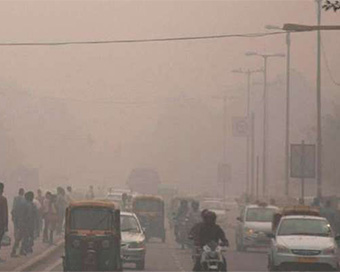Gallery
 PM Modi visit USA
PM Modi visit USA Only the mirror in my washroom and phone gallery see the crazy me : Sara Khan
Only the mirror in my washroom and phone gallery see the crazy me : Sara Khan Karnataka rain fury: Photos of flooded streets, uprooted trees
Karnataka rain fury: Photos of flooded streets, uprooted trees Cannes 2022: Deepika Padukone stuns at the French Riviera in Sabyasachi outfit
Cannes 2022: Deepika Padukone stuns at the French Riviera in Sabyasachi outfit Ranbir Kapoor And Alia Bhatt's Wedding Pics - Sealed With A Kiss
Ranbir Kapoor And Alia Bhatt's Wedding Pics - Sealed With A Kiss Oscars 2022: Every Academy Award Winner
Oscars 2022: Every Academy Award Winner Shane Warne (1969-2022): Australian cricket legend's life in pictures
Shane Warne (1969-2022): Australian cricket legend's life in pictures Photos: What Russia's invasion of Ukraine looks like on the ground
Photos: What Russia's invasion of Ukraine looks like on the ground Lata Mangeshkar (1929-2022): A pictorial tribute to the 'Nightingale of India'
Lata Mangeshkar (1929-2022): A pictorial tribute to the 'Nightingale of India' PM Modi unveils 216-feet tall Statue of Equality in Hyderabad (PHOTOS)
PM Modi unveils 216-feet tall Statue of Equality in Hyderabad (PHOTOS)India Open Competition in Shotgun, organised by the National Rifle Association of India (N
- Hockey India names Amir Ali-led 20-man team for Junior Asia Cup
- Harmanpreet Singh named FIH Player of the Year, PR Sreejesh gets best goalkeeper award
- World Boxing medallist Gaurav Bidhuri to flag off 'Delhi Against Drugs' movement on Nov 17
- U23 World Wrestling Championship: Chirag Chikkara wins gold as India end campaign with nine medals
- FIFA president Infantino confirms at least 9 African teams for the 2026 World Cup
Prolonged air pollution exposure doubles risk of smell loss: Study Last Updated : 30 May 2021 11:16:53 PM IST 
Long-term exposure to particulate matter (PM) 2.5 -- a mixture of solid particles and liquid droplets found in the air -- doubles the risk of losing smell, a hallmark of Covid-19, according to a study.
The loss of smell, a condition known as anosmia, can severely impact a person's quality of life, making it extremely difficult to taste foods, detect airborne hazards in the environment, and carry out other functions dependent on the senses.Covid-19 has further thrust olfaction into the spotlight as olfactory disturbances appear to be both a cardinal symptom and, in some cases, a debilitating consequence of the ongoing global pandemic, said researchers from the Johns Hopkins University in the US.While previous research has associated PM2.5 as a likely culprit for anosmia, the team from Johns Hopkins conducted a new study to better understand how long-term exposure to air pollution can rob someone of the ability to smell and taste.They found long-term airborne exposure to PM2.5 increases the risk of losing one's smell by nearly twice (a 1.6- to 1.7-fold increase).This may occur because the location of the olfactory nerve, which contains the sensory nerve fibres relating to the sense of smell, places it directly in the path of inhaled PM2.5 materials. The findings appeared in the JAMA Network Open."Based on this result, we feel that long-term exposure to high levels of PM2.5 represents a common risk factor for the loss of sense of smell, especially in vulnerable populations such as older people -- but also one that is potentially modifiable if sources of PM2.5 components can be better controlled," said lead author Murugappan Ramanathan, rhinologist and associate professor of otolaryngology -- head and neck surgery at the University's School of Medicine.In their study, the researchers looked at 2,690 people, aged 18 and older, who were evaluated by otolaryngologists between January 2013 and December 2016. Of these, 538 were diagnosed with anosmia, with an average age of 54 and with men making up the majority (339 or 63 per cent).Exposure to PM2.5 has been already linked to cardiovascular disease, lung cancer, decline in cognitive thinking ability, chronic obstructive pulmonary disease, asthma and premature death.IANS Washington For Latest Updates Please-
Join us on
Follow us on








172.31.16.186







